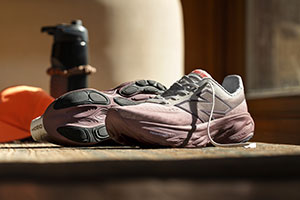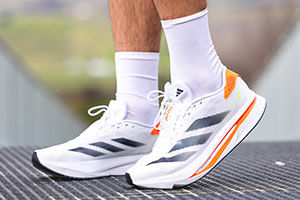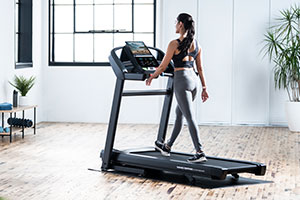My first child was so excited about sports day in kindergarten. I also enjoyed it, especially the race event. Have you ever noticed how kids that age run? It's never with the goal in mind. Instead, they’re in competition with the runners beside them.
You may wonder how fast you run compared to people of the same age and physical build as you. However, running speed depends on so many factors such as distance, gender, age, and more. Someone doing a 100-meter dash would obviously run faster than one who’s running a 10k marathon.
This makes it difficult to give a conclusive response to a question like: how fast can the average person run? My youngest child once responded to the question by saying, “it depends on how dangerous the thing chasing them is”.
By way of a more helpful response, champion racewalkers can average slightly over 14 km/h, so we can assume the slowest runner can do slightly better than this. The fastest speed a human can run is 45 km/h.
This article will go over how fast an average person can run, taking a look at factors such as age, gender, terrain, cadence, weather, experience in running, genetics, and physical acumen.
Running Cadence
We all probably run at a cadence (number of steps a runner takes per minute) that is ideal for our comfort and fitness level. If you are an inexperienced runner, you would probably assume that the faster you move your legs, the more speed you’ll get.
However, that’s just one piece of the puzzle. To run faster, you’ll also need a longer stride and arm swings. A taller person who’s moving their legs a bit slower may still run faster than a much shorter person. Running fans also consider issues like foot strike, posture, stride length, height, and ground contact time, which all affect the speed at which a runner can go.
Gender
Although it is still debatable whether the average running pace for men is still faster than the pace for women, the answer to this question is multifold. It has been estimated that the fastest man is about a second quicker than the fastest woman.
The world's fastest man, Usain Bolt, clocked the 100m race in 9.58 seconds, as opposed to the fastest woman, Florence Griffith-Joyner, who covered the same distance in 10.49 seconds.
Many may say this assertion is biased since it's based on a one-time event. However, the average running speed for men has been pegged at 10.6km per hour, while for women it is 9.6km per hour.
Science looks at factors such as testosterone, heart size differences, hormones, and body size as reasons to why there is a slight difference in running speeds between the genders, but the truth is there are numerous women around the world who can easily outrun the majority of men.
Age
It might be difficult to acknowledge, but young runners are typically faster than their fifty year old counterparts. Generally, youngsters simply have more speed and endurance, their bodies are stronger, and they tend to recover from injuries much faster.
Though it is presumed that as we age, our running speed will decrease significantly, recent studies have shown that it isn't necessarily the case. Although science has revealed that oxygen intake, concentration, and flexibility tend to decline with age, a well-trained individual's general running pace may endure even into their fifties!
Bottom Line
The average running speed of someone who is in relatively peak condition is estimated to range from ten to fifteen miles per hour. Olympic-level sprinters can get up to around thirty seven kilometers per hour in short sprints.
Science can explain half the story, but the other half is unique to every individual. Having said that, following a 10k running plan is a great way to get into peak condition.
If you want to train for short distance runs, then you might find our article, What is a Shuttle Run?, to be useful.




























Comments